- Home
- Jack Higgins
Luciano's Luck Page 3
Luciano's Luck Read online
Page 3
‘Typically Sicilian,’ Walther replied. ‘The cult of death everywhere.’
Kesselring put down his cup. ‘All right, what have I got?’
‘There are eight this morning. All Iron Crosses. First Class, except for the two in whom the Field Marshal has a special interest.’
‘Let's take a look.’
Walther opened the door and ushered him out onto a stoneflagged terrace, an ironwork grille between the pillars. Below in the courtyard eight men were drawn up.
‘Koenig on the far end,’ Herr Field Marshal Walther said. ‘The man next to him is Sturmscharführer Brandt.’
‘Who receives the Knight's Cross?’
‘The third occasion that Koenig has put him forward.’
‘So,’ Kesselring nodded. ‘Then let's get on with it.’
Major Max Koenig was twenty-six and looked ten years older. He had seen action in Poland, France and Holland and had transferred to the newly formed 21st SS Paratroop Battalion in time for the drop over Maleme airfield in Crete in 1941 where he was seriously wounded. Then came the Winter War in Russia. Two years of it and it showed: in the gold wound badge that said he'd been a casualty on five separate occasions; in the general air of weariness, the empty look in the dark eyes.
Except for the silver death's head badge in his service cap and the SS runes and rank badges on his collar, he was all fallschirmjäger : flying blouse, jump trousers tucked into paratroop boots. On his left sleeve was the Kreta cuff title, proud badge of those who had spearheaded the invasion of Crete. The gold and silver eagle of the paratroopers’ qualification badge was pinned to his left breast beside the Iron Cross. The Knight's Cross with Oak Leaves hung at his throat.
Standing at ease at the end of the line waiting to receive the Swords, he felt strangely indifferent and yet strove to find the right thing to say to Sergeant-Major Brandt for whom this was a moment of supreme importance.
‘So, Rudi,’ he whispered. ‘The great occasion at last.’
‘Thanks to you, Major,’ Brandt replied. He was an innkeeper's son from the Austrian Tyrol, a small, wiry man who could climb all day with no need of rest. He and Koenig had been together for more than two years now.
There was a clatter of boots on the stone stain as Kesselring and General Walther appeared and someone called the parade to attention.
It was a pleasant enough affair, for Kesselring was in good humour, full of his usual charm. He had a word for each man as he pinned on the ribbon. They responded well, as was only to be expected, for he was, after all, Commander-in-Chief South and arguably one of the best half-dozen generals on either side during the Second World War.
They had reached Brandt now and Kesselring did a marvellous thing, throwing all distinctions of rank to one side, clapping Brandt on the shoulders and shaking him warmly by the hand before hanging the coveted cross around his neck.
‘My dear Brandt, a real pleasure, I assure you as one soldier to another, and long overdue.’
Brandt was overcome and Koenig was unable to keep a fleeting smile from his lips. A master stroke, but Kesselring knew how to handle men. Then the Field Marshal was standing in front of him, a slightly wry smile on his face as if he had noticed Koenig's reaction and was asking him to bear with him.
‘What on earth can I say, Major? You are only the thirtieth recipient of the swords since the award was created. Normally, our Führer himself would wish to decorate you personally, but these are extraordinary times. I can only say how delighted I am that the honour falls to me.’
He held Koenig by the shoulders for a moment and then, as if in a sudden excess of emotion, embraced him.
Later, back in Walther's office having a cognac before lunch, Kesselring said, ‘A very impressive young man.’
‘He's certainly that,’ Walther agreed.
‘Decent, honourable, chivalrous. A superb soldier. What every member of the Waffen SS would like to imagine himself to be. Let's have him in and get it over with.’
Walther pressed a buzzer on his desk and a moment later an aide looked in.
‘Major Koenig,’ Walther said.
The aide withdrew and Koenig entered. He paused at the desk, clicked his heels, and his hand went to the peak of his fieldcap in a military salute.
The Field Marshal said, ‘Pull up a chair, Major, and sit down.’
Koenig did as he was told. Kesselring turned to the largescale military map of Sicily on the wall. ‘I see you've applied for a transfer already.’
‘Yes, Herr Field Marshal.’
‘Well, it's denied.’
‘May I be permitted to ask why?’
‘I could say because that silver plate they had to put in your skull after your last exploit in Russia makes you unsuitable for jumping out of aeroplanes any more. But I don't need to. Your task here in Sicily is of vital importance.’
General Walther said, ‘There is still too much partisan activity here in the central mountains, particularly in the region of the Cammarata. It would be fatal to our interests in the event of an invasion.’
‘I thought the Allies intend to try Sardinia first, General?’ queried Koenig.
Walther and Kesselring glanced at each other and Kesselring laughed. ‘Go on, tell him. I don't see why not.’
Walther said, ‘Actually, you're not far wrong, Major. The high command in Berlin, the Führer himself, feel that Sardinia will be the invasion point.’
‘A few weeks ago, the body of a British courier was washed up on a Spanish beach,’ Kesselring went on. ‘A Royal Marine Major. He was carrying letters to General Alexander in Tunisia. There was another from Lord Louis Mountbatten to Sir Andrew Cunningham, Commander-in-Chief of the British Mediterranean Fleet. The gist of these letters indicates firmly that the target for the Allied invasion will be Sardinia and Greece. Any attack on Sicily will be diversionary.’
There was a heavy silence. General Walther said, ‘We'd be interested in your opinion. Feel free to speak.’
‘What can I say, Herr General.’ Koenig shrugged. ‘Miracles do occur on occasions, even in this day and age. Presumably this British Major's being so conveniently washed up on a Spanish beach where our agents could have a sight of the letters he was carrying, was one of them.’
‘But on the whole,’ Kesselring said, ‘you don't believe in miracles.’
‘Not since I stopped reading the fairy tales of the Brothers Grimm, Herr Field Marshal.’
‘Good.’ Kesselring was all business now. ‘Give me your personal assessment of the situation here.’
Koenig stood up and moved round to the map. ‘As regards partisan activity, two important groups. The Separatists, who want an independent Sicily, and the Communists. We all know what they want.
‘They cut each other's throats as cheerfully as they do ours.’
‘General Walther was explaining to me about this Mafia movement,’ Kesselring said. ‘Are they a force to be reckoned with?’
‘Yes, I think they have very real power under the surface of things and again, they are peculiarly Sicilian. Mainland Italy and Mussolini mean nothing to them.’
‘And if an invasion comes, they will fight?’
‘Oh, yes, I think so.’ Koenig nodded. ‘All of them. Our main worry would be the Italian Army itself.’
‘You think so?’ Kesselring asked.
Koenig took a deep breath and jumped in with both feet. ‘Frankly, Herr Field Marshal, I think the fact must be faced that the Italian people as a whole, have lost any interest they ever had in the war and all enthusiasm for Mussolini.’
There was a slight pause and then Kesselring smiled. ‘An accurate enough assessment. I wouldn't disagree with that. So, you think invasion will come to Sicily?’
Koenig ran a finger along the road south from Palermo to Agrigento. ‘Here is the most vital road in the whole of Sicily, passing through the Cammarata, one of the wildest and most primitive places in the island. There has been considerable partisan activity in that area recently. Acc
ording to our informants, a number of American agents have been dropped by parachute during the past few weeks. So far, we haven't succeeded in catching any of them.’
Kesselring picked up a folder from the desk. ‘And yet you almost had this man.’ He opened the file. ‘Major Harry Carter, in charge of the Italian desk at Special Operations Executive in Cairo. You had him, Koenig, and let him slip through your fingers.’
‘With respect, Herr Field Marshal,’ Koenig corrected him firmly, ‘my task was to provide backup forces on the ground. The affair was in the hands of the Geheimefeldpolizei and Gestapo. And I would remind you, sir, that thanks to Russia, I have only thirtyfive men remaining in what was once a battalion. Not a single officer is left on the strength except myself.’
‘The capture of Carter would have been an intelligence coup of the first order and Berlin, in the person of Reichsführer Himmler, is not pleased. To that end he has ordered the transfer of one of his most trusted intelligence officers from the Rome Office to work with you here.’
‘I see, Herr Field Marshal,’ Koenig said. ‘Gestapo?’
‘Oh, no,’ Kesselring told him gravely. ‘Rather more important than that.’ He turned to Walther. ‘Show Major Meyer in.’
The man who entered was broad and squat with a flat Slav face and cold blue eyes. Koenig recognized the type at once for the security service was full of them; expolice officers, more used to the criminal underworld than anything else. He wore SS field uniform and his only decoration was the Order of Blood, a much coveted Nazi medal specially struck for those who had served prison sentences for political crimes in the old Weimar Republic. The most interesting fact about him was his cufftitle which carried the legend RFSS picked out in silver thread. Reichsführer der SS, the symbol of Himmler's personal staff.
‘Major Franz Meyer, Major Koenig.’ Walther made the introductions while Kesselring stood looking out of the window, smoking a cigarette.
Meyer took in everything about Koenig with the policeman's practised eye: the highly irregular SS uniform, the Knight's Cross with Oak Leaves and Swords.
‘A pleasure, Major,’ he said.
Koenig turned to Kesselring. ‘There is a difficulty here, I think, Herr Field Marshal. Who is to be in charge? Meyer and I would appear to carry the same rank.’
‘No difficulty there, I hope?’ Kesselring said, smoothly. ‘I see you as performing separate functions; you being responsible for the purely military side of the operation and Major Meyer for the, how shall I put it? The more political aspects.’
‘There will be no problem from my point of view, I can assure the Herr Field Marshal of that,’ Meyer said.
‘Excellent.’ Kesselring managed a wintry smile. ‘And now, if you would leave us, Meyer. There are still matters I wish to discuss with Major Koenig.’
Meyer clicked his heels, delivered an impressive Heil Hitler and departed. When he'd gone, Kesselring said, ‘I know what you're going to say, Koenig, and you're quite right. It places you in a most difficult situation.’
‘Almost impossible, Herr Field Marshal. I will have no authority of rank, which means the wretched man can interfere as much as he likes.’
He was angry and it showed. Kesselring said, ‘Rank has little to do with the matter. As a member of the Reichsführer's personal staff, he will always have considerable influence in certain situations, even were I myself concerned. However, I have done the best I can for you in the circumstances.’
He nodded to Walther who handed Koenig a buff envelope. Koenig started to open it and Kesselring said, ‘No, keep it for later.’ He held out his hand in another of those unexpected gestures. ‘I wish you luck. You're going to need it.’
‘Herr Field Marshal General.’ Koenig saluted, turned and went out.
Franz Meyer stood in the hall, pretending to read the noticeboard as he waited for Koenig.
His dislike for the Major had been immediate and it went beyond any personal jealousy of Koenig's military distinction. The truth was far deeper. Koenig was a gentleman, son of a Major General of the Luftwaffe. Meyer, on the other hand, was the third son of a Hamburg shoemaker who had served the last two years of the First World War in the trenches, who had starved like thousands of others in Germany during the twenties, thanks to the British and the French and the Jews until the Führer had come along, a man of the people, giving hope to the people. And Meyer had served him since those first days, one of the earliest party members in Hamburg. The Führer himself had pinned the Blood Order on him. The Koenigs of the world, who thought themselves so far above him, had a lesson to learn.
He turned as Koenig approached. ‘Ah, there you are, Major. I would very much appreciate an opportunity to discuss my duties at the earliest possible moment. This Carter affair, for example.’
‘Gestapo business, not mine,’ Koenig said, pulling on his gloves. ‘I merely provided ground support.’
Meyer said, ‘A valuable field officer murdered, Carter allowed to get clean away, yet you took no hostages in Bellona. Exacted no reprisals.’
‘I'm a soldier, not a butcher,’ Koenig said. ‘If the distinction doesn't appeal to you, take it up with the Field Marshal.’
‘There are perhaps others I could take it up with,’ Meyer replied calmly. ‘Reichsführer Himmler might well be interested in an officer of SS who expresses such sentiments.’
‘Then you must discuss it with him,’ Koenig said, ‘as I'm sure you will,’ and he went out of the entrance, down the steps and crossed to where Brandt waited for him behind the wheel of a kubelwagen.
Koenig smoked a cigarette as they drove down towards Palermo. Finally, he said, ‘Pull over, Rudi. I must walk for a while.’
Brandt turned in at the entrance of the Pellegrino cemetery and Koenig got out and walked through the gates between even lines of Cyprus trees.
He stood looking up at a white marble tomb with a lifesize statue of Santa Rosalia of Pellegrino on top. Brandt moved in behind him.
Koenig said, ‘The most vulgar thing I've ever seen in my life.’
Brandt asked, ‘What happened back there?’
‘Oh, nothing much. They've hung a Major called Meyer from Himmler's personal staff on my back, that's all. The Field Marshal was very sorry, but there wasn't much he could do about it.’
He reached into his pocket for matches and the envelope Kesselring had given him fell out. Brandt picked it up as Koenig lit a cigarette.
‘Major,’ he said, holding the envelope out.
‘Kesselring's parting gift,’ Koenig told him. ‘Open it and let's see what it was he didn't have the courage to tell me personally.’
He turned, looking out towards the sea, aware of Brandt ripping open the envelope and then the sergeant major's incredulous explosion of delight. Koenig swung round and Brandt held out the letter, smiling.
‘It's your promotion, LieutenantColonel.’
Koenig stared at him for a long moment, then snatched the letter from him. The formality of the language meant nothing to him. The important thing was that Brandt was right. Kesselring had promoted him. When he looked at the envelope, he saw now that it was addressed to Obersturmbannführer Max Koenig. What was it Kesselring had said? I have done the best I can for you in the circumstances.
He clapped Brandt on the shoulder. ‘A celebration, Rudi, is very definitely in order.’ As they started to walk back towards the kubelwagen he laughed. ‘My God, but I'd like to see Meyer's face when he hears about this.’
4
It was four weeks later when the jeep carrying Harry Carter deposited him at the ornate entrance of the villa at dar el Ouad. He went up the steps slowly, taking his time and passed into the cool darkness.
Cusak looked up from his desk and got to his feet instantly. ‘Major Carter. Good to see you, sir.’
‘I believe I'm expected.’
‘That's right, sir. I'll tell General Eisenhower you're here.’
He moved away and Carter went out on the terrace. Was it only six week
s since he'd stood here? He had that pain in his chest again and in spite of the fact, or because of it, he took the old silver case from his breast pocket, selected a cigarette and lit it, inhaling with great deliberation.
There was a quick step behind him and as he turned, Cusak said, ‘The General will see you now, Major.’
Standing in front of the desk, Carter was filled with a strange sense of déja vu. Eisenhower, looking up at him, frowned. ‘You don't look too good, Major.’
‘I'll be all right, sir. I was just wondering whether it was then or now.’
Eisenhower smiled. ‘Oh, yes, you've been here before, I can assure you. I get days like that myself. Sit down.’ He pulled a file forward and opened it. ‘I read your report with considerable interest.’
Carter pulled forward a chair. ‘Thank you, sir.’ He hesitated. ‘Is the Sicilian invasion on, General?’
Eisenhower looked up and said calmly, ‘During the next few weeks the British under General Montgomery will invade at the Eastern end of the island, while General Patton and the Seventh Army will land in the South and strike for Palermo. Are you surprised?’
‘Not really, sir, although there's been a strong opinion in Sicily for months now, which I might say the Germans seem to hold also, that Sardinia would be the target.’
‘Which is exactly what we want them to think. But let's get back to the original question I put to you when you were last here. According to your report, you seem certain that Washington is hoping for too much with the Mafia connection.’
‘I'm afraid so, General.’
There was a brief silence, while Eisenhower stared down at the file. ‘All right, what's your solution?’
‘Well, there is a man, General, named Luca. Don Antonio Luca. He's what's known in Sicily as Capo di Tutti Capi. Boss of all the bosses. The fascists imprisoned him in 1940. Sent him to prison on the mainland Naples. He escaped later that year and returned to Sicily where he's been in hiding ever since. He's the one man they'll all listen to. I don't wish to blaspheme, but in Sicily he could pull a larger audience than the Pope.’
‘Then find him,’ Eisenhower said.

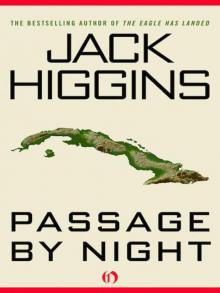 Passage by Night (v5)
Passage by Night (v5)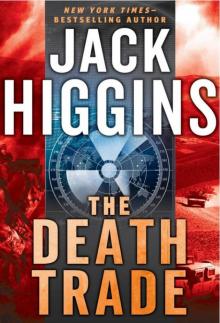 The Death Trade sd-20
The Death Trade sd-20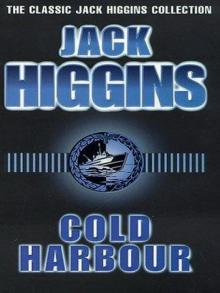 Cold Harbour
Cold Harbour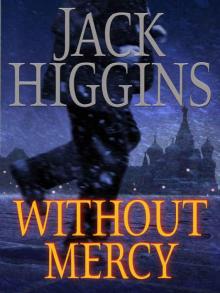 Without Mercy
Without Mercy Solo (Aka the Cretan Lover)(1980)
Solo (Aka the Cretan Lover)(1980) First Strike
First Strike Confessional - Devlin 03 (v5)
Confessional - Devlin 03 (v5) The Midnight Bell
The Midnight Bell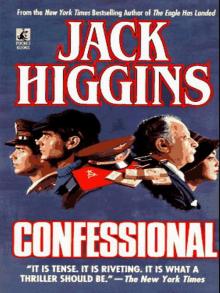 Confessional
Confessional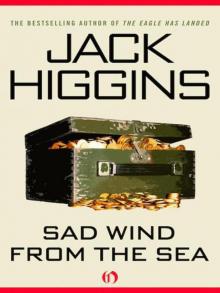 Sad Wind from the Sea (v5)
Sad Wind from the Sea (v5)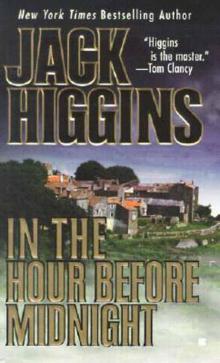 In The Hour Before Midnight aka The Sicilian Heritage
In The Hour Before Midnight aka The Sicilian Heritage Wrath of the Lion
Wrath of the Lion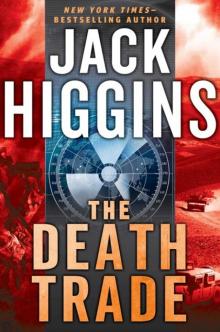 SDillon 20 - The Death Trade
SDillon 20 - The Death Trade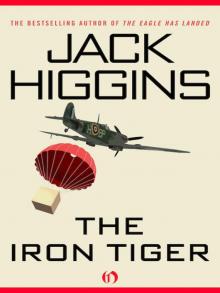 the Iron Tiger (1974)
the Iron Tiger (1974)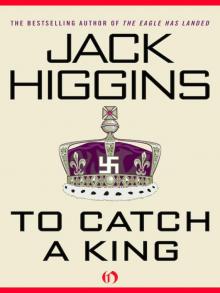 To Catch a King
To Catch a King Bloody Passage (1999)
Bloody Passage (1999)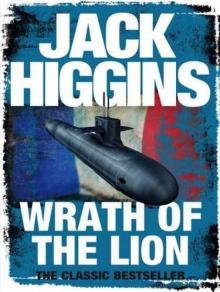 Wrath of the Lion sd-8
Wrath of the Lion sd-8 Sharp Shot
Sharp Shot Pay the Devil (v5)
Pay the Devil (v5) A Devil Is Waiting
A Devil Is Waiting Dark Side of the Street - Simon Vaughn 01 (v5)
Dark Side of the Street - Simon Vaughn 01 (v5)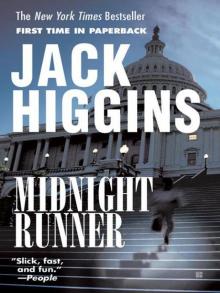 Midnight Runner - Sean Dillon 10
Midnight Runner - Sean Dillon 10 Wrath of God
Wrath of God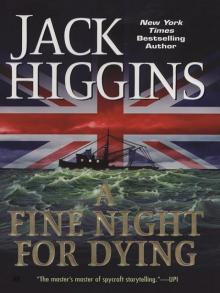 A Fine Night for Dying
A Fine Night for Dying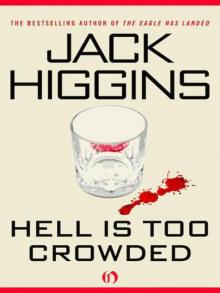 Hell Is Too Crowded v5)
Hell Is Too Crowded v5)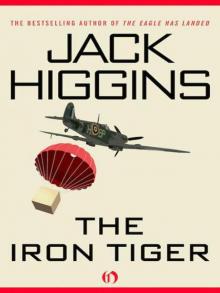 the Iron Tiger (v5)
the Iron Tiger (v5) Dark Side of the Street pc-5
Dark Side of the Street pc-5 Hell Is Always Today
Hell Is Always Today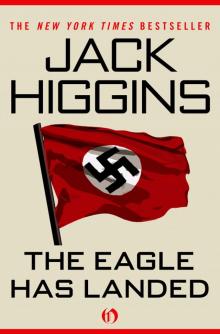 Eagle Has Landed
Eagle Has Landed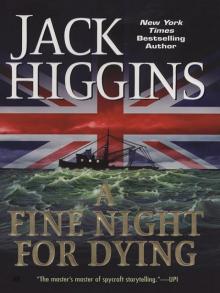 A Fine Night for Dying pc-6
A Fine Night for Dying pc-6 the Last Place God Made (v5)
the Last Place God Made (v5)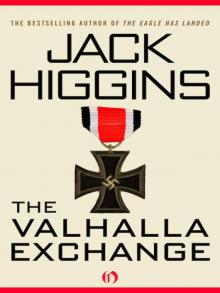 the Valhalla Exchange (1976)
the Valhalla Exchange (1976)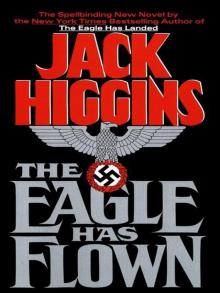 The Eagle Has Flown
The Eagle Has Flown Sure Fire
Sure Fire Pay the Devil (1999)
Pay the Devil (1999) Memoirs of a Dance Hall Romeo
Memoirs of a Dance Hall Romeo![a Prayer for the Dying (1974)[1] Read online](http://i1.bookreadfree.com/i1/04/02/a_prayer_for_the_dying_19741_preview.jpg) a Prayer for the Dying (1974)[1]
a Prayer for the Dying (1974)[1]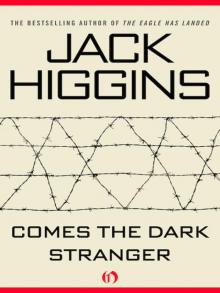 Comes the Dark Stranger
Comes the Dark Stranger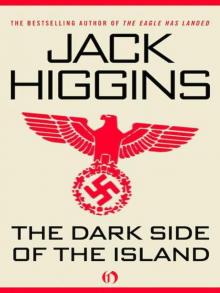 Dark Side Of the Island (v5)
Dark Side Of the Island (v5)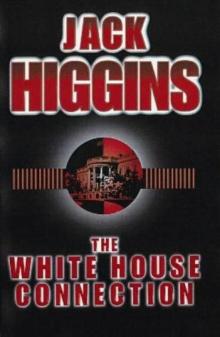 The White House Connection sd-7
The White House Connection sd-7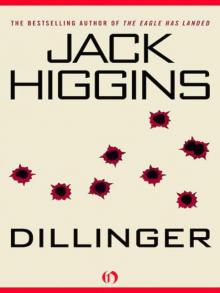 Dillinger (v5)
Dillinger (v5) Eye of the Storm
Eye of the Storm Eye Of The Storm aka Midnight Man
Eye Of The Storm aka Midnight Man A Darker Place
A Darker Place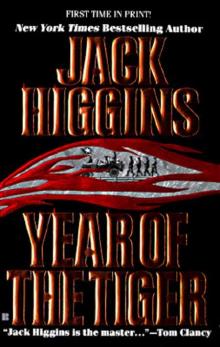 Year Of The Tiger
Year Of The Tiger Death Run
Death Run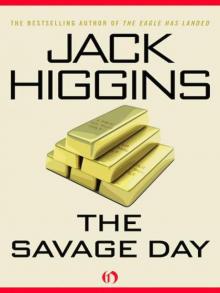 the Savage Day - Simon Vaughn 02 (v5)
the Savage Day - Simon Vaughn 02 (v5) Bloody Passage (v5)
Bloody Passage (v5)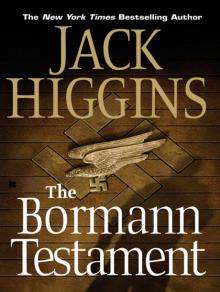 The Bormann Testament
The Bormann Testament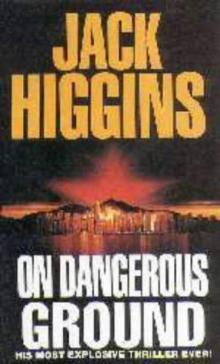 On dangerous ground sd-3
On dangerous ground sd-3 Dark Justice
Dark Justice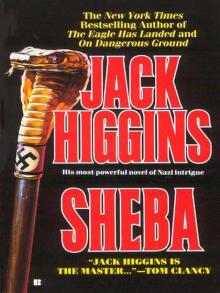 Sheba
Sheba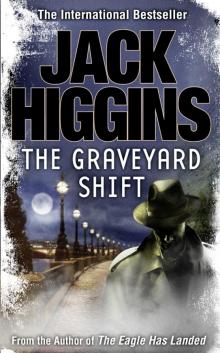 The Graveyard Shift
The Graveyard Shift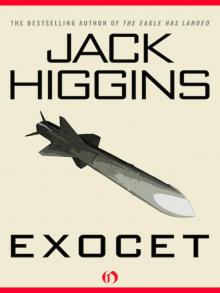 Exocet (1983)
Exocet (1983) The Wolf at the Door
The Wolf at the Door The wolf at the door sd-17
The wolf at the door sd-17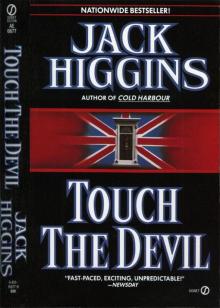 Touch The Devil
Touch The Devil The President’s Daughter
The President’s Daughter A Prayer for the Dying (v5)
A Prayer for the Dying (v5)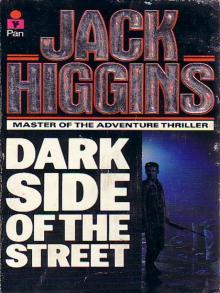 Dark Side Of The Street
Dark Side Of The Street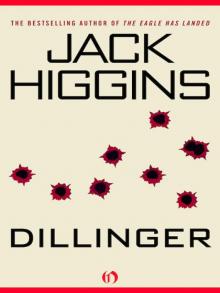 Dillinger (1983)
Dillinger (1983)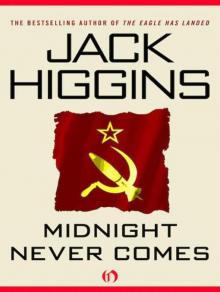 Midnight Never Comes pc-4
Midnight Never Comes pc-4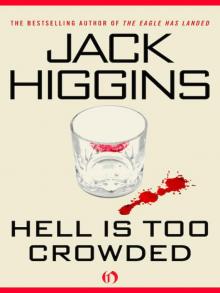 Hell Is Too Crowded (1991)
Hell Is Too Crowded (1991)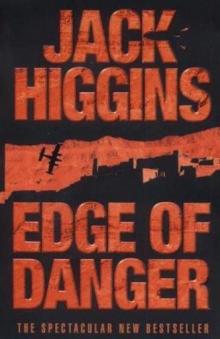 Edge of Danger sd-9
Edge of Danger sd-9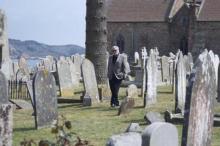 The Thousand Faces of Night (v5)
The Thousand Faces of Night (v5)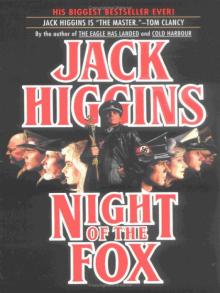 Night Of The Fox
Night Of The Fox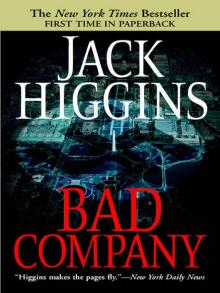 Bad Company
Bad Company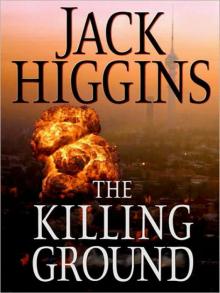 The Killing Ground
The Killing Ground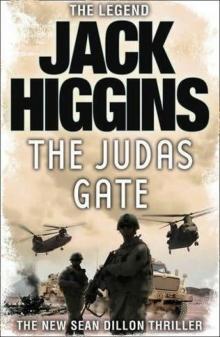 The Judas gate sd-18
The Judas gate sd-18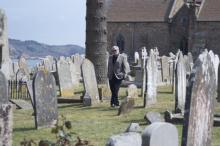 The Thousand Faces of Night (1961)
The Thousand Faces of Night (1961) Solo (Aka the Cretan Lover) (v5)
Solo (Aka the Cretan Lover) (v5)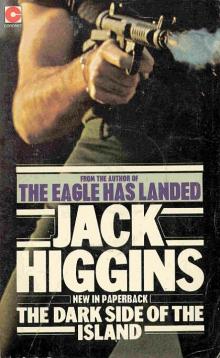 The Dark Side Of The Island
The Dark Side Of The Island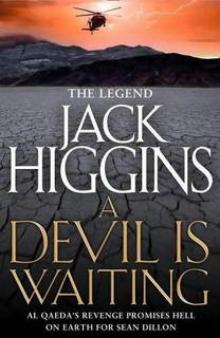 A Devil is vaiting sd-19
A Devil is vaiting sd-19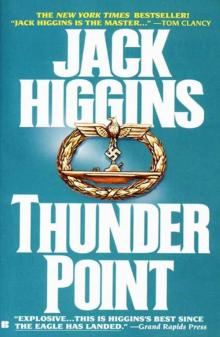 Thunder Point
Thunder Point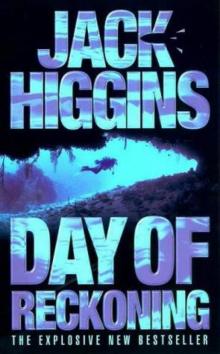 Day of Reckoning sd-8
Day of Reckoning sd-8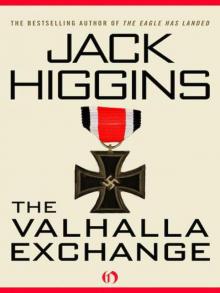 the Valhalla Exchange (v5)
the Valhalla Exchange (v5)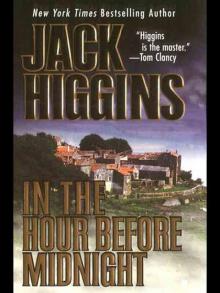 In the Hour Before Midnight
In the Hour Before Midnight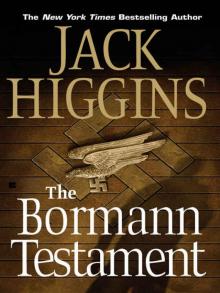 The Bormann Testament (The Testament of Caspar Schultz)
The Bormann Testament (The Testament of Caspar Schultz) The Judas Gate
The Judas Gate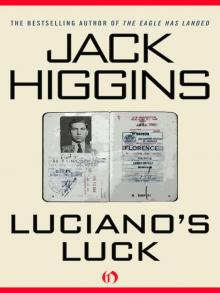 Luciano's Luck
Luciano's Luck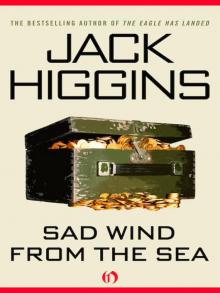 Sad Wind from the Sea (1959)
Sad Wind from the Sea (1959)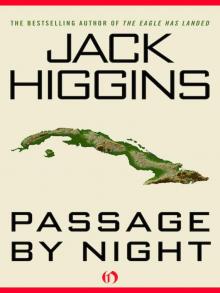 Passage by Night (1987)
Passage by Night (1987)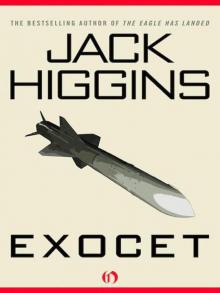 Exocet (v5)
Exocet (v5)